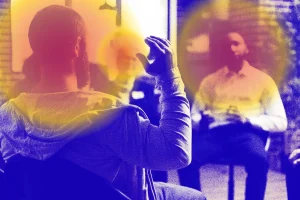A California Senate committee has approved a bill to legalize psychedelics service centers where adults 21 and older could access psilocybin, MDMA, mescaline and DMT in a supervised environment with trained facilitators.
The Senate Business, Professions, and Economic Development Committee passed the legislation from Sen. Scott Wiener (D) with an amendment in a 7-4 vote on Monday.
The “Regulated Therapeutic Access to Psychedelics Act” has been drafted in a way that’s meant to be responsive to concerns voiced by Gov. Gavin Newsom (D) last year when he vetoed a broader proposal that included provisions to legalize low-level possession of substances such as psilocybin.
READ: DEA Schedules Hearing on Proposed Ban of Two Psychedelics
Instead, the new bill that’s now being unveiled would provide regulated access to psychedelics in a facilitated setting without removing criminal penalties for possession outside of that context. It does not lay out any specific qualifying medical conditions that a person must have in order to access the services.
Before reaching the committee, the measure had already undergone a series of mostly technical amendments. Wiener also agreed to revise the legislation at Monday’s hearing to make it so psychedelics facilitators would need to have an existing professional health license, such as those for psychiatrists, social workers, drug and alcohol counselors, and nurse practitioners.
“Psychedelics, when used safely, can turn people’s lives around, and we owe it to Californians to make these substances accessible in a safe and secure context, under the supervision of a licensed professional,” Wiener said last month. “I thank the Business and Professions Committee for recognizing that need today.”
READ: How a Supreme Court Ruling Made Blotter Paper Beloved Among Acid Dealers Everywhere
Advocates were disappointed to see the governor, who championed marijuana legalization while serving as the state’s lieutenant governor, reject the earlier psychedelics measure from Wiener last year. But the senator has said he was encouraged that Newsom recommended a dialed-back pathway to reform.
How to Grow Shrooms Bundle
Take Both of Our Courses and Save $90!
SB 1012 is a “direct response to the Governor’s request,” Wiener’s office said.
The bill is set to be considered by the Senate Public Safety Committee on April 23.
Here’s what the bill, SB 1012, would accomplish:
- Adults 21 and older could access psilocybin, psilocin, DMT, mescaline (excluding peyote), and MDMA at licensed facilities with trained facilitators.
- Facilitators would need to undergo training and obtain a license under a professional board that’d be established under the California Department of Consumer Affairs (DCA).
- The board would be overseen by an expert oversight committee under the Business, Consumer Services, and Housing Agency (BCSHA)—with members appointed by the governor.
- The bill would establish a “Division of Regulated Psychedelic-Assisted Therapy” under the BCSHA that would be tasked with regulating the psychedelics program.
- Regulators would need to develop rules to allow for the licensing of producers and laboratory testing facilities for psychedelics.
- The bill would not restrict psychedelic services to people with a specific set of qualifying medical conditions.
- Individuals interested in participating in the psychedelic services would need to submit to a health and safety screening.
- Facilitators must conduct follow-up appointments with participants, report any adverse effects, and provide integration services.
- The legislation would create a public-private fund that would be tasked with promoting public education about the safe use of psychedelic substances.
- Psychedelics would remain prohibited outside of the licensed service centers, and there would be no commercial sales component of the law.
- Regulators would also need to ensure that psychedelic services are affordable and accessible to low-income populations.
- A “Public Education and Harm Reduction Fund” would also be created to support efforts to educate the public about the potential benefits and risks of psychedelics.
Meanwhile, Assemblymember Marie Waldron (R), the lead on the Assembly side, is sponsoring a separate psychedelics bill focused on promoting research and creating a framework for the possibility of regulated therapeutic access that has already moved through the Assembly this year with unanimous support.
Separately, a California campaign to put psilocybin legalization on the state’s November ballot recently announced that it did not secure enough signatures to qualify in time for a deadline.
Another campaign filed and then abruptly withdrew an initiative to create a $5 billion state agency tasked with funding and promoting psychedelics research last year.
A third campaign also entered the mix late last year, proposing to legalize the possession and cultivation of substances like psilocybin, LSD, MDMA, DMT, ibogaine, and mescaline. People could buy them for therapeutic use with a doctor’s recommendation. Advocates for that measure still have time to gather and turn in signatures.
The California Legislative Analyst’s Office (LAO) has since released its review of that proposal, outlining not only the plan’s policy implications but also its potential fiscal impacts on the state—which the report calls “various” and “uncertain.”
Some California municipalities, meanwhile, are pushing forward with reform on the local level. The city of Eureka, for example, adopted a resolution in October to decriminalize psychedelic plants and fungi and make enforcement of laws against personal use, cultivation, and possession a low priority for police. It’s at least the fifth local jurisdiction in the state to embrace the policy change. Others include San Francisco, Oakland, Santa Cruz, and Arcata.
*This story originally appeared on Marijuana Moment

DoubleBlind is a trusted resource for news, evidence-based education, and reporting on psychedelics. We work with leading medical professionals, scientific researchers, journalists, mycologists, indigenous stewards, and cultural pioneers. Read about our editorial policy and fact-checking process here.

DoubleBlind Magazine does not encourage or condone any illegal activities, including but not limited to the use of illegal substances. We do not provide mental health, clinical, or medical services. We are not a substitute for medical, psychological, or psychiatric diagnosis, treatment, or advice. If you are in a crisis or if you or any other person may be in danger or experiencing a mental health emergency, immediately call 911 or your local emergency resources. If you are considering suicide, please call 988 to connect with the National Suicide Prevention Lifeline.



